- Home
- Russell Blake
King of Swords a-1 Page 9
King of Swords a-1 Read online
Page 9
He was on his way to meet a man who was rumored to know how to get in touch with El Rey, which didn’t mean much at this stage, as most of the hustlers on the street would claim to know how to get you a meeting with Santa or Jesus for a fee. But this contact was different — he was higher up than most of the contacts on Julio’s roster.
Felipe was loosely affiliated with the Gulf Cartel, and handled some of their distribution logistics, in addition to managing some of their love-for-sale venues, so he probably dragged down thirty grand U.S. a month, no sweat. That kind of money suggested that you were unlikely to be a time-waster or a con artist. If you were in the game at that level and you said you knew a guy who knew a guy, you probably did. Julio’s challenge would be to get to the next stage. That sounded easier than it would likely be.
Julio knew how the street worked — if you were responsible for bringing someone into a circle and they wound up burning someone, you paid the price as the person who vouched for them. It was a brutally effective approach. If Felipe knew anyone affiliated with El Rey, he’d be very reluctant to admit it unless the reward far exceeded any risk.
He’d known Felipe for three years and had partied with him more than once, bringing in the dawn as they’d left one club or another together. It had been a mutually beneficial relationship — Felipe passed on prospects who really needed money in a hurry for investment, generally in product he was selling, but was unwilling to provide them with credit. Everyone benefited; Felipe got his needs met, Julio got his profit, and the borrower got to play with other people’s money. None of his referrals had defaulted, so it was a relationship built on love. The truth was that Julio could lose money on occasion to support his cover and there would be no ramifications, but it offended his sense of business acumen — it was more the principle of the thing.
Felipe greeted Julio with a hug when he walked into his bar. He immediately called over two girls for Julio’s consideration. They were enticing beauties, but Julio waved them off — he was there for business. He did accept a glass of Don Julio 1942, and waited until they were comfortably settled in a corner booth at the back of the club before he began the discussion he’d come for.
“I hear that you can get just about anything a man could want, my friend,” Julio began.
“Very true. Thank goodness that most men’s imaginations are limited to things I can readily provide — for a price, of course,” Felipe observed.
“It’s the way of the world, is it not?” Julio agreed.
“Indeed, my friend, indeed. So…how can I help you today, Raphael? What could I possibly have that you might want? Just mention it, and it’s yours,” Felipe offered magnanimously. He knew Julio as Raphael — his undercover name.
“I have need of a delicate specialist, for a friend. A very wealthy, powerful friend who can afford the absolute best, and demands it.”
“Sounds like my kind of people. And what does he want, exactly?” Felipe asked.
“He has a business partner who has been less than candid with him about the profits of one of their businesses, and he’s grown tired of having to wake up every morning, distrustful and angry. So he wants to retire his partner…with prejudice,” Julio explained.
“Ah. I see. Well, there are many discreet professionals who can accommodate that sort of request,” Felipe observed.
“An additional wrinkle is that the partner is his wife’s father, so it’s precarious; he can’t afford the chore to be botched. So he’s willing to hire the very best in the business, no matter what the cost,” Julio elaborated.
“Hmm. That could be very, very expensive. How much is at stake here?”
“They’re involved in a variety of large-scale real estate development projects, domestically, and in Dubai. So it’s a great deal of money, my friend, a very great deal. I don’t get the feeling he’s price sensitive,” Julio said.
Felipe considered Julio with interest.
“And why did he come to you?” he asked.
“He knows me as a fixer — someone who can handle problems. He felt that I might be able to better navigate these difficult waters than he could. And he is very generous with his gratitude. I have a feeling the love on this one could be, well, almost embarrassingly large.”
“How serious is he? When you get to a certain level, the client risks angering the contractor if he isn’t prepared to meet the terms and conditions. And when you’re talking about the best, and I mean the very best, you don’t want to trifle with the contractor. It would be bad for one’s health,” Felipe explained.
“I’m fully aware of what’s required, and I’ve gotten sufficient assurances to be comfortable acting as the client’s representative.”
Felipe leaned back, staring at the ceiling as he thought about the proposal. Julio waited patiently, his anxiety now they were at the tipping point masked by years of experience. Appearing to make a decision, Felipe leaned forward, clasping his hands together as if praying.
“I do have a contact who attends to these sorts of matters. Let me make a call and see what his schedule looks like. But Raphael? Once you go down this road there’s no turning back. Even my friendship won’t do much good if something sours on your end once the contract is made. I would think long and hard about this particular contractor. He’s the best — notorious, actually — but he is very particular about the projects he takes, and he is insanely expensive; as in multiple-seven-figure-American insanely expensive. Is that a problem?” Felipe asked.
“It depends upon who the contractor is. There’s no way that kind of money will change hands unless there’s a reason for the fee to be that high. We both know that. So unless this is, say, El Rey we’re talking, I think I can tell you that he won’t want to play. That’s the level of talent he’s used to dealing with — he had the Black Eyed Peas play for his daughter’s wedding, as an example,” Julio shared.
Felipe sat back, impressed.
“That’s exactly the level of talent I’m referring to. There’s really only one number one in any game, isn’t there? When number two won’t do?” Felipe said.
Julio’s pulse quickened. “And you can make an introduction?”
“Not with the contractor himself, obviously. But I think I could make contact with someone who could speak for him,” Felipe said, lighting a Marlboro with his solid gold Dunhill lighter.
Felipe liked his little luxuries, Julio mused. He wore a platinum Lange amp; Sohne watch, Gucci loafers, an Armani blazer. Business must be good. Then again, both of their businesses were relatively recession proof. And what was the point in having real money if you couldn’t treat yourself to the things you loved?
“I’d be in your debt if you could make that call,” Julio stated, locking eyes with Felipe. “And I would be very generous for your trouble.”
“But take my warning seriously, Raphael. I would hate to see you get yourself into something you couldn’t get out of. Once the call is made, you’re on the road. Do you fully understand?”
“I wouldn’t be imposing if this wasn’t extremely serious. I think we both know that there are dozens of also-rans who would jump at the chance to help my client for a fraction of the numbers you’re tossing around. But if you can afford the best, that’s what you want. And there’s a lot at stake here, Felipe. So I know exactly what I’m getting into, and like I said, I’m completely confident, both in the client’s seriousness as well as his gratitude. A gratitude that I will gladly share,” Julio assured him.
“Spreading the wealth is always best, n’est-ce pas?” Felipe quipped.
“I would have it no other way.”
They toasted, and Felipe called the stunning blond female bartender over and requested a refill of their drinks. She smiled at them both, eyes hinting at possibility.
Julio and Felipe exchanged knowing glances.
“Just bring the bottle, Amanda. And pull up a chair. Do you know my good friend Raphael?”
Chapter 7
Four men in a silver D
odge Durango with stolen plates approached the offices of Gustavo amp; Sons, importers and manufacturers of fine stone products. Anxiety filled the vehicle’s atmosphere with its distinctive buzz, as the men checked and rechecked their weapons — Kalashnikov AK-47s purchased in Guatemala, a residual of the Nicaraguan and El Salvadorian actions. Gun ownership in Mexico was illegal, with very few permits issued for hunting weapons, and yet the country abounded with automatic assault rifles. The cartels never seemed to have any issues getting their hands on guns, so the law was perplexing to many.
Juan Carlos Batista sat in the passenger seat with the air-conditioning blasting in his face, barely denting the perspiration that was a by-product of his preparation for battle, as he thought of it. This was far from his first armed assault, but he always felt a flutter of nerves in the moments before the shooting started. It was his variant of performance anxiety. But once bullets were flying, he was eerily cool and dispassionate. The four lines of cocaine he’d snorted in the parking lot seven minutes before had heightened his awareness, but done nothing to still the butterflies in his stomach.
Batista had come up the ranks of La Familia Michoacana before that cartel had dissolved into several others, including the Knights Templar cartel, in which he was a high ranking lieutenant, commanding dozens of enforcers in addition to hundreds of traffickers. The dissolution of La Familia had been a bloody one, and civilian casualties had been high. Many of the cartel’s foot soldiers had a propensity for shooting before they confirmed a target, and some of the more reckless had taken to tossing grenades into crowds where they suspected their targets were standing. It had been a troubling time until Santiago had asserted his authority as the new leader — a result of a grisly catalog of executions of his foes; other pretenders to the throne from La Familia Michoacana. During the most combative month, beheaded corpses left by the side of the road had been a daily occurrence — one of Santiago’s favored signature flourishes.
His demise had left a gap in the leadership, and that vacuum would be filled. Batista was a natural for the top position. He was as vicious as they came, had proved himself in battle time and time again, was a sociopath who killed without regret, and had good organizational skills. In cartel parlance, he was a born leader who was feared and respected by his subordinates. He had just turned twenty-nine.
Many cartel members never saw their thirties, so on his next birthday he was going to be an old man in that shadow world — a survivor that time had tested with every imaginable obstacle, all of which he’d overcome. He’d been shot twice and had come back to kill his assailants, so he had a reputation for being unusually tough. Most of the time when you shot a man, he stayed shot, but Batista seemed to have the angels on his side.
Batista had grown up watching American movies, and not surprisingly, his favorites had been Scarface and Goodfellas. In an obscene example of life imitating art, he’d aspired to being not only a rich and feared narcotraficante, but also to emulate the fictional characters in his favorite films. There was a part of him that believed real life was supposed to be as portrayed in those films, and so he’d created an environment where it was — to the detriment of society, as well as most of his rivals.
The narcotraficante lifestyle was so celebrated in some segments of popular culture that there were numerous songs glorifying the exploits of the cartels, and a whole generation had grown up believing that an existence involving routine murder was the new normal. Batista was one of them, and he’d long since lost count of how many lives he’d taken. It was just one of the things he did, until it was done to him. He didn’t dwell on things he couldn’t change, preferring to live in the moment. It wasn’t a highly evolved philosophy, he knew, but it worked for him.
The SUV pulled up to the side entrance of the warehouse that doubled as the Gustavo amp; Sons showrooms, and the men exchanged glances before pulling ski masks over their faces, on the off chance that anyone remained alive once they were through. They got out of the Durango and moved stealthily to the side exit, assault rifles held at the ready. Two of the men had been army soldiers before deserting, so they had gotten formal military training, which they’d used to ascend the ranks as enforcers and executioners.
Disputes were routinely resolved by the parties butchering each other, as well as their enemies’ families, so every cartel had its armed forces and its operational group. While the two could co-mingle, often the personnel chartered with the smuggling avoided the armed clashes, to the extent they could. The armed contingency lived, as did all armed organizations, to fight, and they did so with abandon, turning many of Mexico’s larger cities into shooting galleries. Internet sites in hot zones routinely posted safe routes for travelers to use to avoid armed encounters, and social media followed the skirmishes in real time, as did the police and cartel members.
It was a kind of economically-driven guerilla civil war memorialized on Twitter and Facebook. The summary brutality of the cartels was just a part of living in some Mexican cities, especially the large metropolitan areas near the border and key stops along the smuggling routes — Acapulco, Morelia, Culiacan, Monterrey, and a host of others. Even relatively safe areas like Guadalajara and Puerto Vallarta and Mazatlan saw violence, as the clashes expanded into secondary towns.
Batista swung the door open and quickly moved inside, his enforcers following him. The receptionist uttered a stifled scream and put her hands up, as did the two office workers. Batista considered her momentarily, then gestured for her to exit through the front door. She didn’t need to be asked twice, and the two clerks gratefully followed her out, running to their cars the moment they were clear of the building. One of Batista’s lieutenants nudged his arm and pointed up to the corner of the room, where a small security camera captured everything for posterity. That was a serious problem, because if anyone was watching real time they would now be forewarned.
They quickly discovered that was the case. A steel door at the back flew open, and a hail of gunfire followed. Batista’s men took cover behind the heavy wooden desks and returned fire, peppering the now-darkened warehouse beyond with slugs. They heard a man cry out in pain — then came a lull in the shooting — possibly due to magazines being changed. One of the ex-military men ran crouched towards the opening, and narrowly avoided being stitched with a new burst of fire. He took it in stride as he calmly extracted a hand grenade from his windbreaker and armed it, extracting the pin with his teeth. He waited silently for a few beats, then threw the metal orb through the door. The ensuing explosion deafened them all and cloaked the warehouse in a cloud of smoke.
Sensing their opportunity, Batista ran through the door, firing indiscriminately in all directions. Pausing when his weapon ran dry, he fished another banana clip from his pants pocket and jettisoned the empty one while scanning the area. Three men lay bleeding on the warehouse floor. But not his target.
He saw movement from the periphery and swung around just as a shotgun poked out of the upstairs offices behind him and fired, catching him full in the chest. Batista was knocked backwards as his soldiers sprayed a hail of lead into the upstairs suite. Rapid bursts of machine-gun fire returned the favor, and one of the ex-military men took a slug through the neck, dropping his weapon with a gurgle before crumpling to the floor near Batista. The two remaining men exchanged glances, and one pitched another grenade through the now shattered upstairs office windows, to be rewarded with a muffled detonation.
Shooting stopped, and the two cautiously ascended the stairs, listening for movement before kicking the door in. A burst of shooting spat out from inside; the front man flew off the landing, falling to the hard cement a story below with a wet thwack, bullet holes stitched across his chest. A pool of blood spread from behind his head, creating a halo effect to frame his now sightless eyes. The second man crouched by the side of the door and stuck his rifle into the room, firing blind. His weapon snicked empty, and he was fumbling with a spare magazine when the shotgun appeared from around the doorway and boomed,
taking half his head off at point blank range.
An eerie silence began to permeate the space, still echoing with the residual energy of the gun battle. A bald man in his thirties with blood streaming down his face peered from the office, and seeing nothing but bodies, carefully moved around the corpse on the landing, probing it momentarily with his toe before descending the stairs, his SPAS-12 combat twelve gauge shotgun sweeping the warehouse for other assailants.
Satisfied he was alone, he strode over to the fallen ex-military Batista soldier and fired a round into his head, liquefying it. As the cordite from the shot cleared, he spotted Batista lying on the floor twenty feet away, his chest shredded from the double aught buckshot blast. Grinning, he sauntered over and sneered at his fallen rival, pausing to spit on his body before blowing his head off.
The round caught the bald man by surprise. He regarded Batista unbelievingly as he touched the smoking hole in his sternum, directly over his heart. Blood seeped through his fingers, and he held his hand over the wound in a futile attempt to halt the spurts of life from leaking out of his body. He fell to his knees still clutching his chest, until the light went out of his eyes and he slipped to the floor, gurgling a death rattle before finally lying still, a sightless stare of shocked disbelief frozen for posterity on his pallid face.
Batista sat up and rolled his head from side to side, massaging his neck with his left hand while he kept his gun trained on the dead man. He stayed like that for a few seconds, then slowly stood, testing his reflexes and balance. Satisfied he was intact, he slipped the Springfield XD(M).40 caliber assault pistol back into his shoulder holster, pausing to feel the depressions from the shotgun pellets in the Kevlar vest he wore under his sweatshirt. He blew out a sigh and made for the exit. The shrill warning cry of sirens keened in the distance, but he knew from experience that by the time the police made it to the building he’d be long gone.

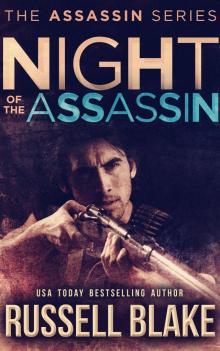 Night of the Assassin
Night of the Assassin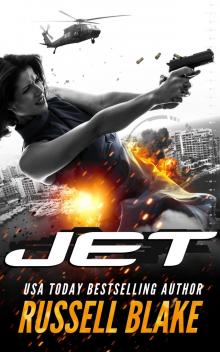 Jet
Jet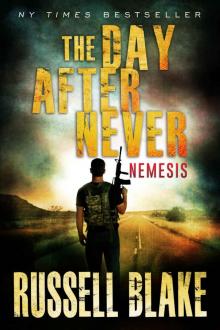 The Day After Never - Nemesis (Post-Apocalyptic Dystopian Thriller - Book 9)
The Day After Never - Nemesis (Post-Apocalyptic Dystopian Thriller - Book 9)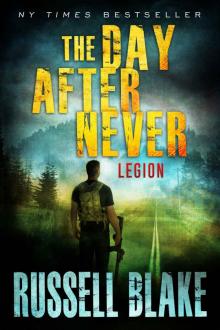 The Day After Never - Legion (Post-Apocalyptic Dystopian Thriller - Book 8)
The Day After Never - Legion (Post-Apocalyptic Dystopian Thriller - Book 8)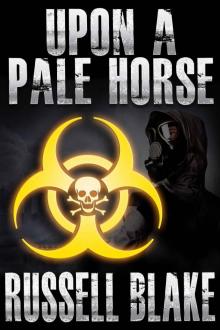 Upon A Pale Horse (Bio-Thriller)
Upon A Pale Horse (Bio-Thriller)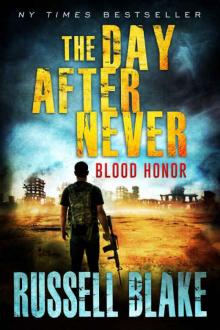 The Day After Never (Book 1): Blood Honor
The Day After Never (Book 1): Blood Honor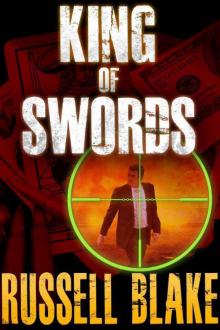 King of Swords a-1
King of Swords a-1 The Day After Never Bundle (First 4 novels)
The Day After Never Bundle (First 4 novels)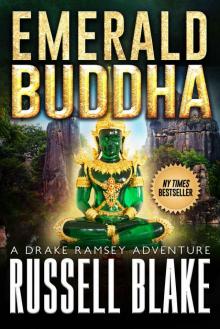 Emerald Buddha (Drake Ramsey Book 2)
Emerald Buddha (Drake Ramsey Book 2)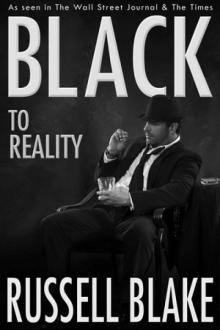 BLACK to Reality
BLACK to Reality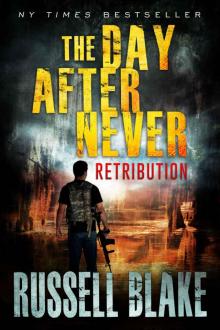 The Day After Never - Retribution (Post-Apocalyptic Dystopian Thriller - Book 4)
The Day After Never - Retribution (Post-Apocalyptic Dystopian Thriller - Book 4)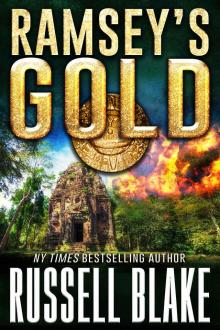 Ramsey's Gold (Drake Ramsey Book 1)
Ramsey's Gold (Drake Ramsey Book 1)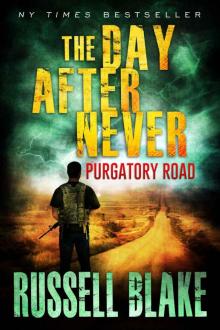 The Day After Never (Book 2): Purgatory Road
The Day After Never (Book 2): Purgatory Road JET - Ops Files
JET - Ops Files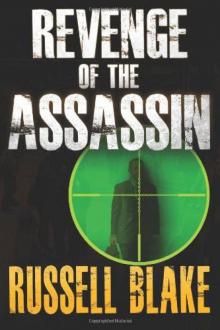 Revenge of the Assassin a-2
Revenge of the Assassin a-2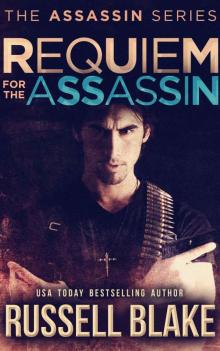 Requiem for the Assassin - 06
Requiem for the Assassin - 06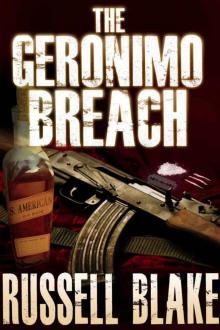 The Geronimo Breach
The Geronimo Breach Sahara
Sahara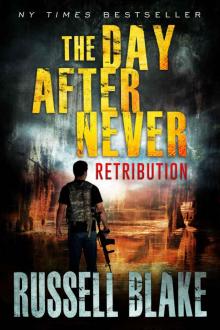 The Day After Never (Book 4): Retribution
The Day After Never (Book 4): Retribution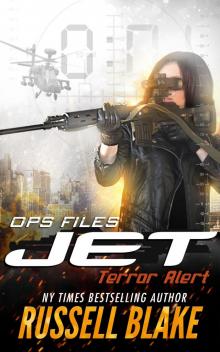 Ops Files II--Terror Alert
Ops Files II--Terror Alert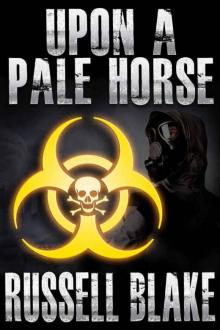 Upon A Pale Horse
Upon A Pale Horse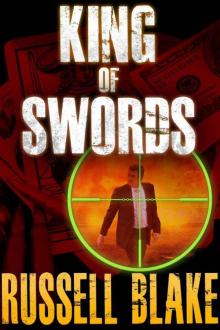 King of Swords (Assassin series #1)
King of Swords (Assassin series #1) A Girl Apart
A Girl Apart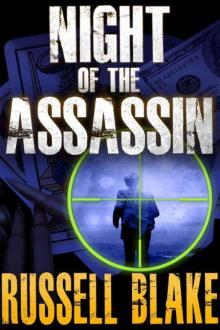 Night of the Assassin: Assassin Series Prequel
Night of the Assassin: Assassin Series Prequel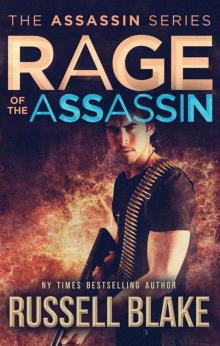 Rage Of The Assassin
Rage Of The Assassin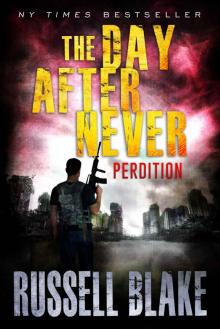 The Day After Never - Perdition (Book 6)
The Day After Never - Perdition (Book 6)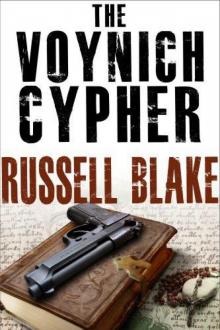 The Voynich Cypher
The Voynich Cypher JET, no. 3
JET, no. 3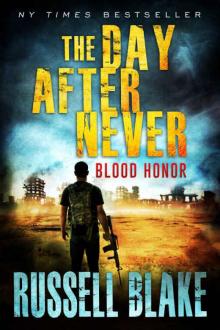 The Day After Never - Blood Honor (Post-Apocalyptic Dystopian Thriller)
The Day After Never - Blood Honor (Post-Apocalyptic Dystopian Thriller)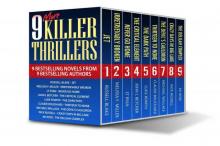 9 More Killer Thrillers
9 More Killer Thrillers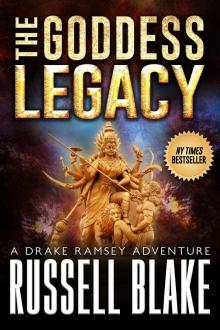 The Goddess Legacy
The Goddess Legacy Fatal Exchange
Fatal Exchange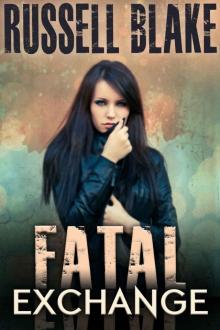 Fatal Exchange (Fatal Series Book 1)
Fatal Exchange (Fatal Series Book 1)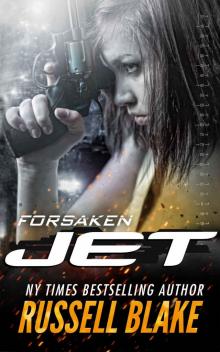 JET - Forsaken
JET - Forsaken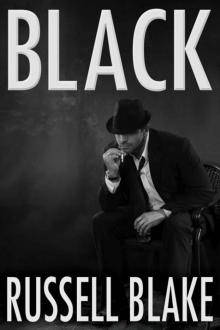 Black
Black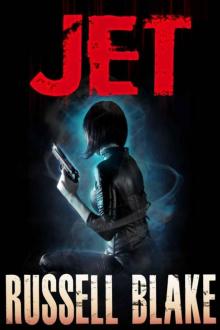 Jet j-1
Jet j-1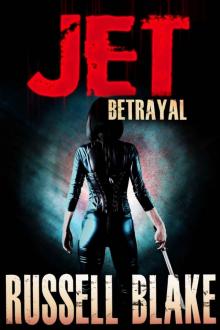 Betrayal j-2
Betrayal j-2 Jet 04: Reckoning
Jet 04: Reckoning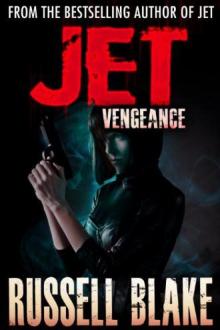 Jet 03: Vengeance
Jet 03: Vengeance Fatal Deception
Fatal Deception A Girl Betrayed (A Leah Mason suspense thriller Book 2)
A Girl Betrayed (A Leah Mason suspense thriller Book 2)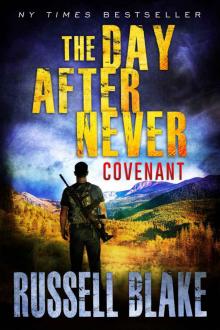 The Day After Never - Covenant (Post-Apocalyptic Dystopian Thriller - Book 3)
The Day After Never - Covenant (Post-Apocalyptic Dystopian Thriller - Book 3)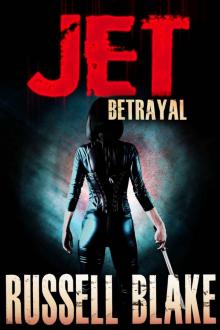 JET II - Betrayal (JET #2)
JET II - Betrayal (JET #2)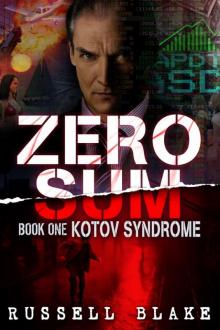 Zero Sum, Book One, Kotov Syndrome
Zero Sum, Book One, Kotov Syndrome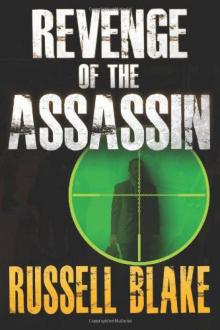 Revenge of the Assassin
Revenge of the Assassin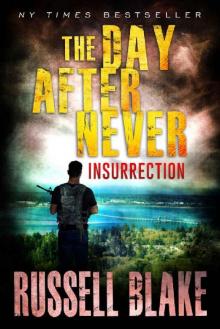 The Day After Never - Insurrection (Book 5)
The Day After Never - Insurrection (Book 5)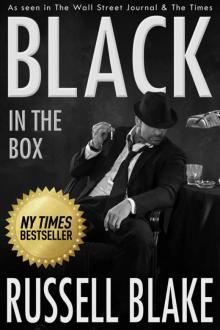 BLACK in the Box
BLACK in the Box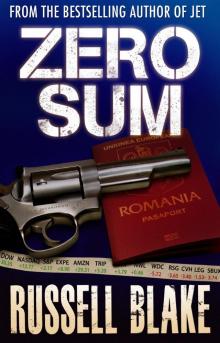 Zero Sum
Zero Sum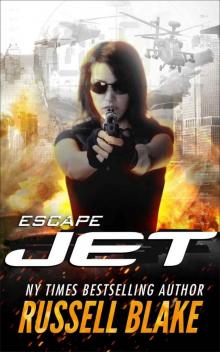 JET - Escape: (Volume 9)
JET - Escape: (Volume 9)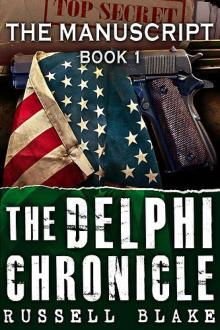 The Manuscript
The Manuscript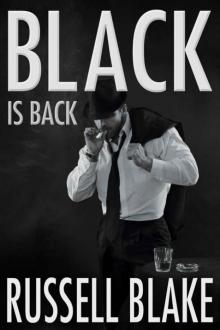 BLACK Is Back
BLACK Is Back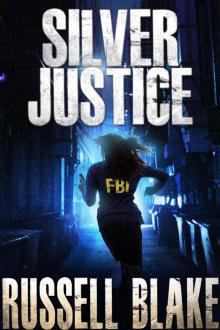 Silver Justice
Silver Justice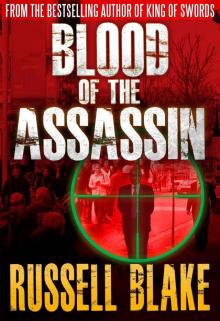 Blood of the Assassin
Blood of the Assassin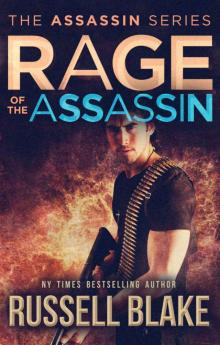 Rage of the Assassin: (Assassin Series #6)
Rage of the Assassin: (Assassin Series #6)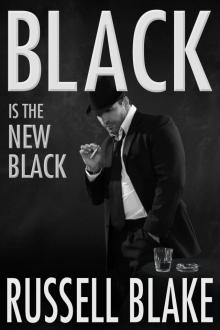 BLACK Is the New Black
BLACK Is the New Black